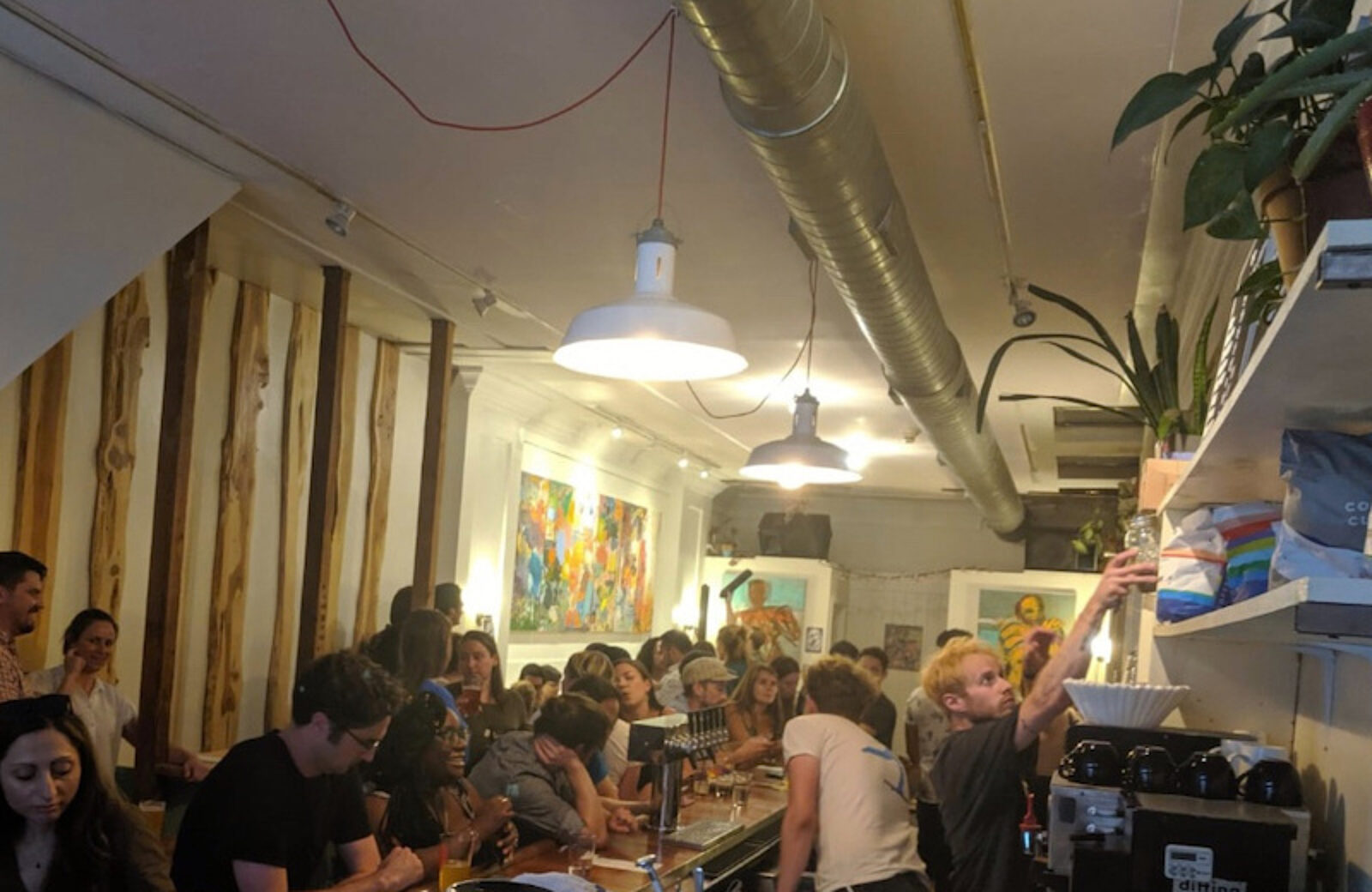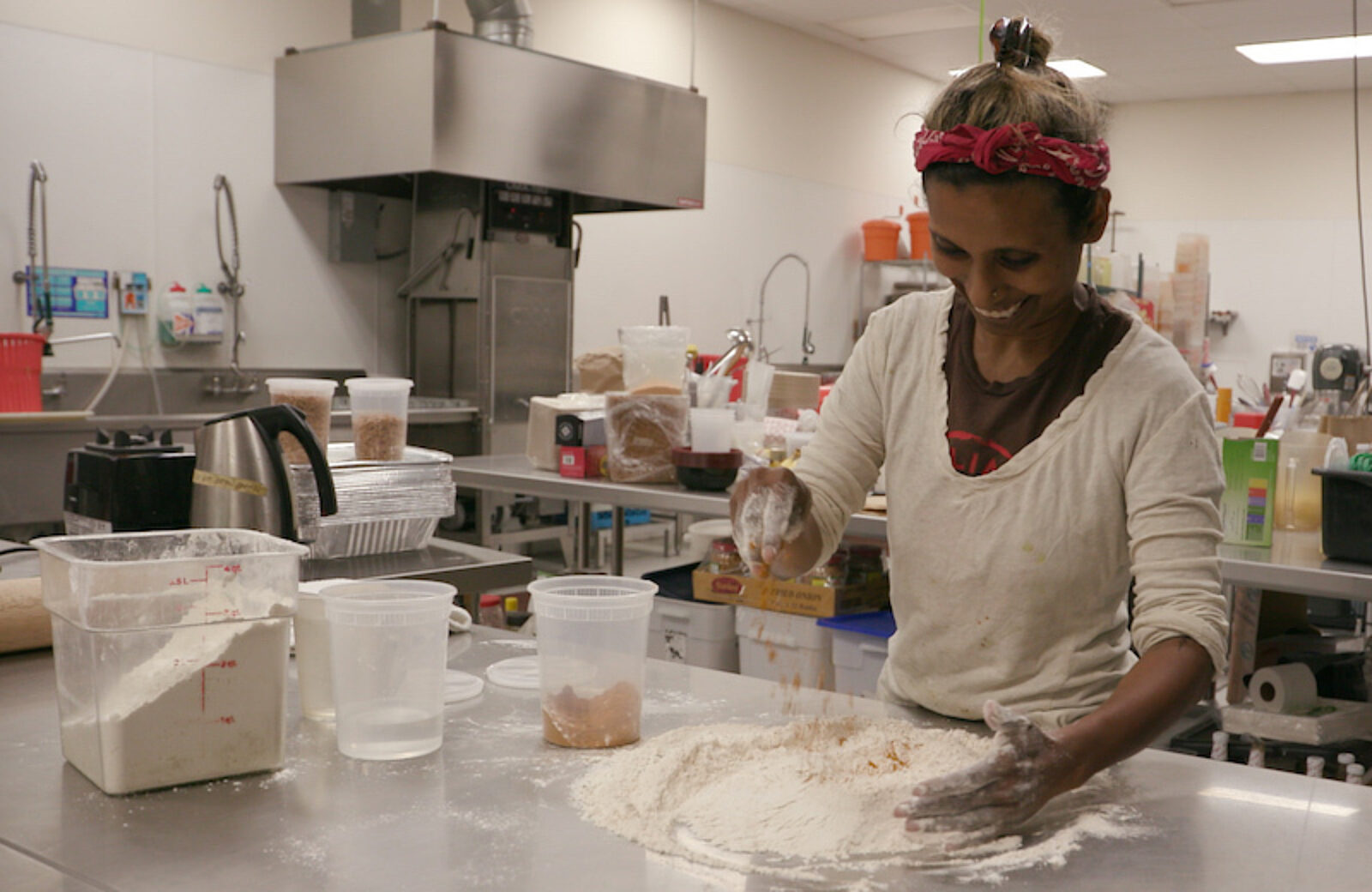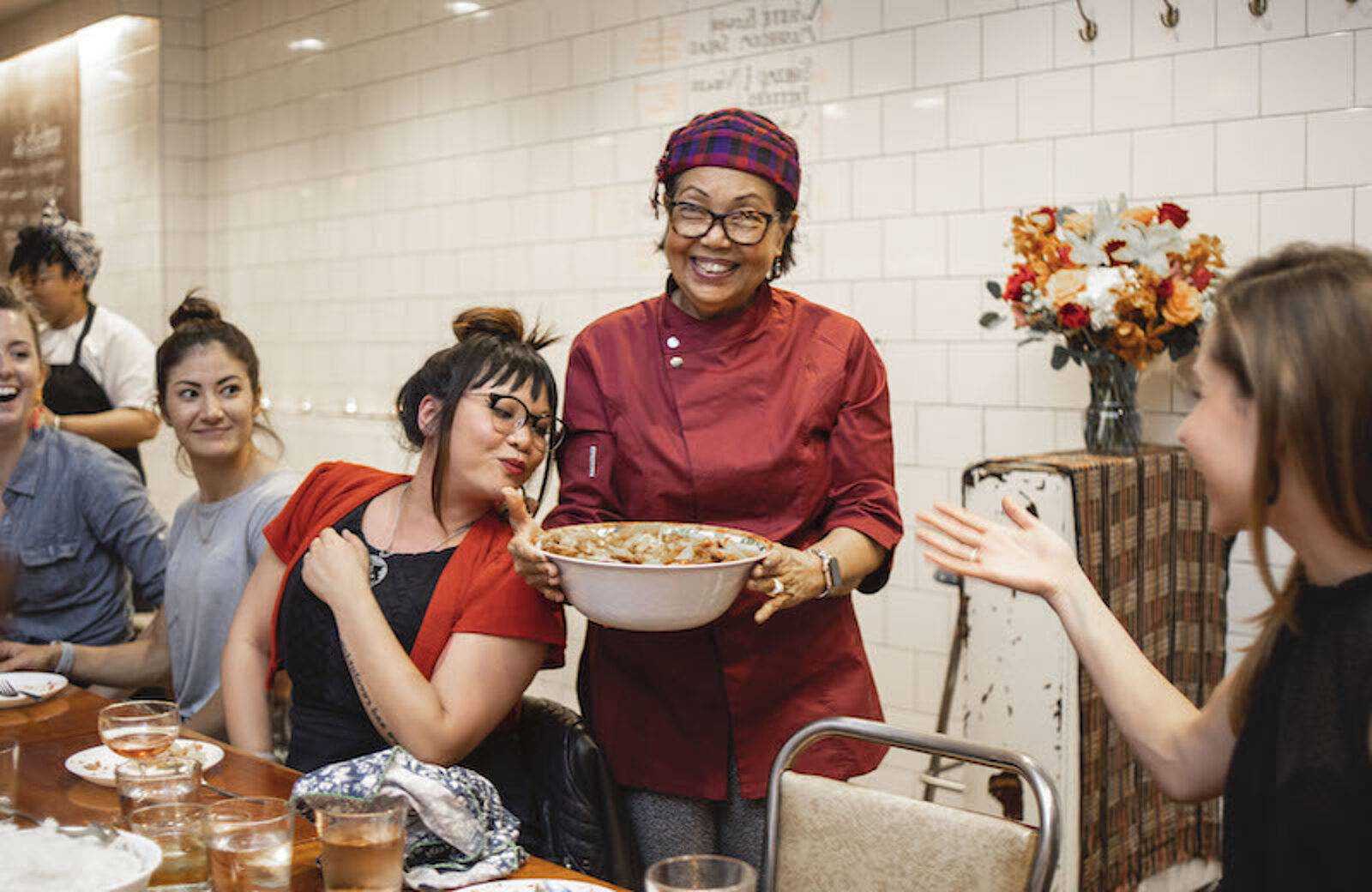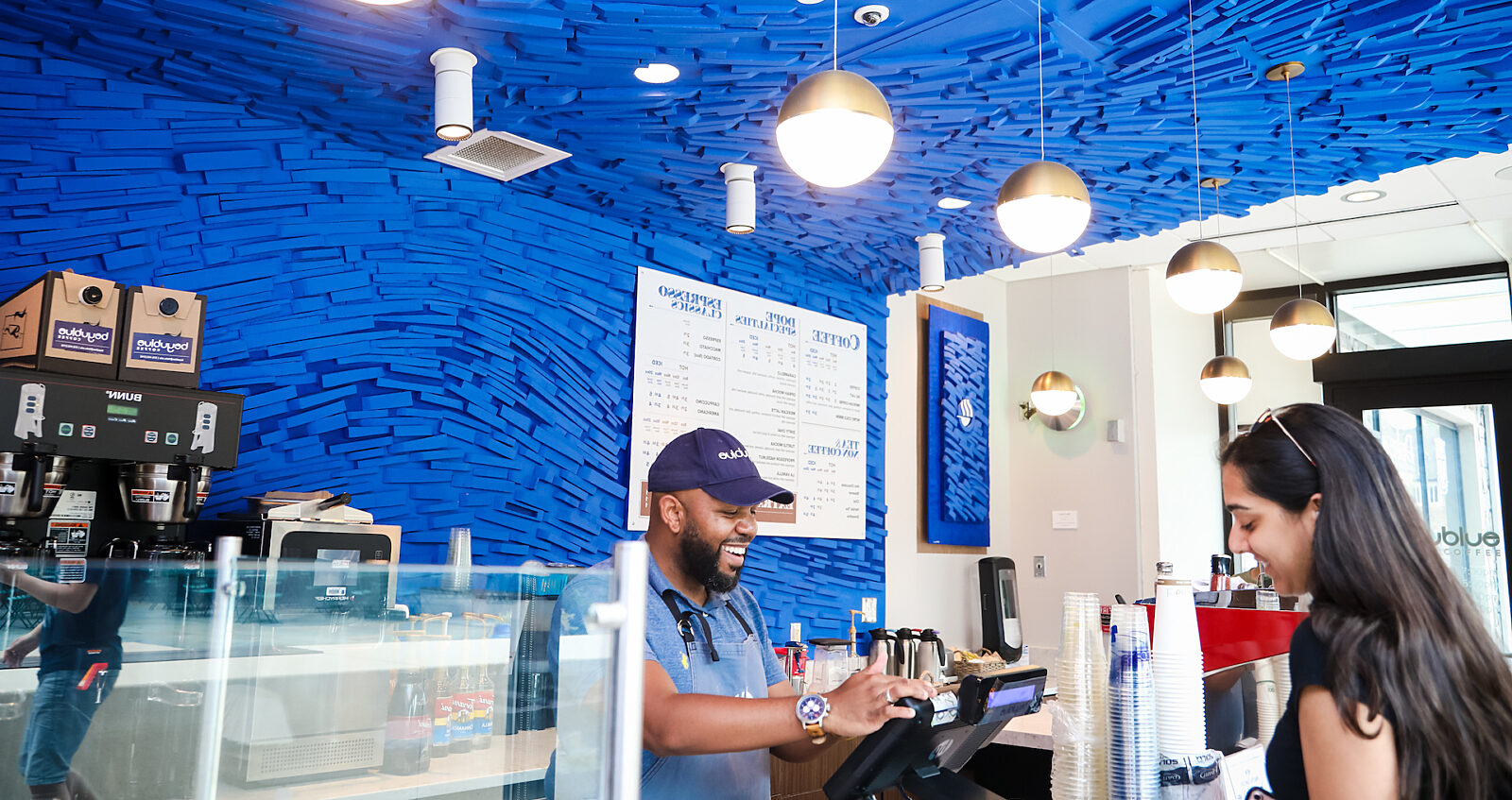
“We’ve Had to Adapt From Day One. What's Different About Now?"
The defiant victories of three black-owned restaurants through opening and through COVID-19.

Carla BellAuthor
Breaking into the restaurant industry is challenging for anyone. The path is never linear: real estate financing, payroll, customer outreach, and dozens of other hurdles await. And for Black restaurateurs, the hurdles are multiplied, but the victories are great.
Dorian Bolden, owner of Beyu Caffe Hospitality Group, says the irony of America is its reputed opportunity for advancement for all, coupled with a system designed to hold Black people back.
To the countless Black entrepreneurs just trying to survive another day, through the added challenges of the COVID-19 pandemic, Bolden says do the opposite of what everyone else is doing, because innovation and collaboration are the only options. “Find your strengths and take measured risks,” he says.
Those are difficult notions in a time when everything is about playing it safe, he knows, but given “the realities of [racial] privilege, we’re [unlikely to see] another opportunity where the playing field is even, where people who don’t look like you are struggling like you. So, use this time to your advantage,” he reasons. "Be creative, focus on community relationships rather than competition, identify opportunities that solve problems, and go for them.”
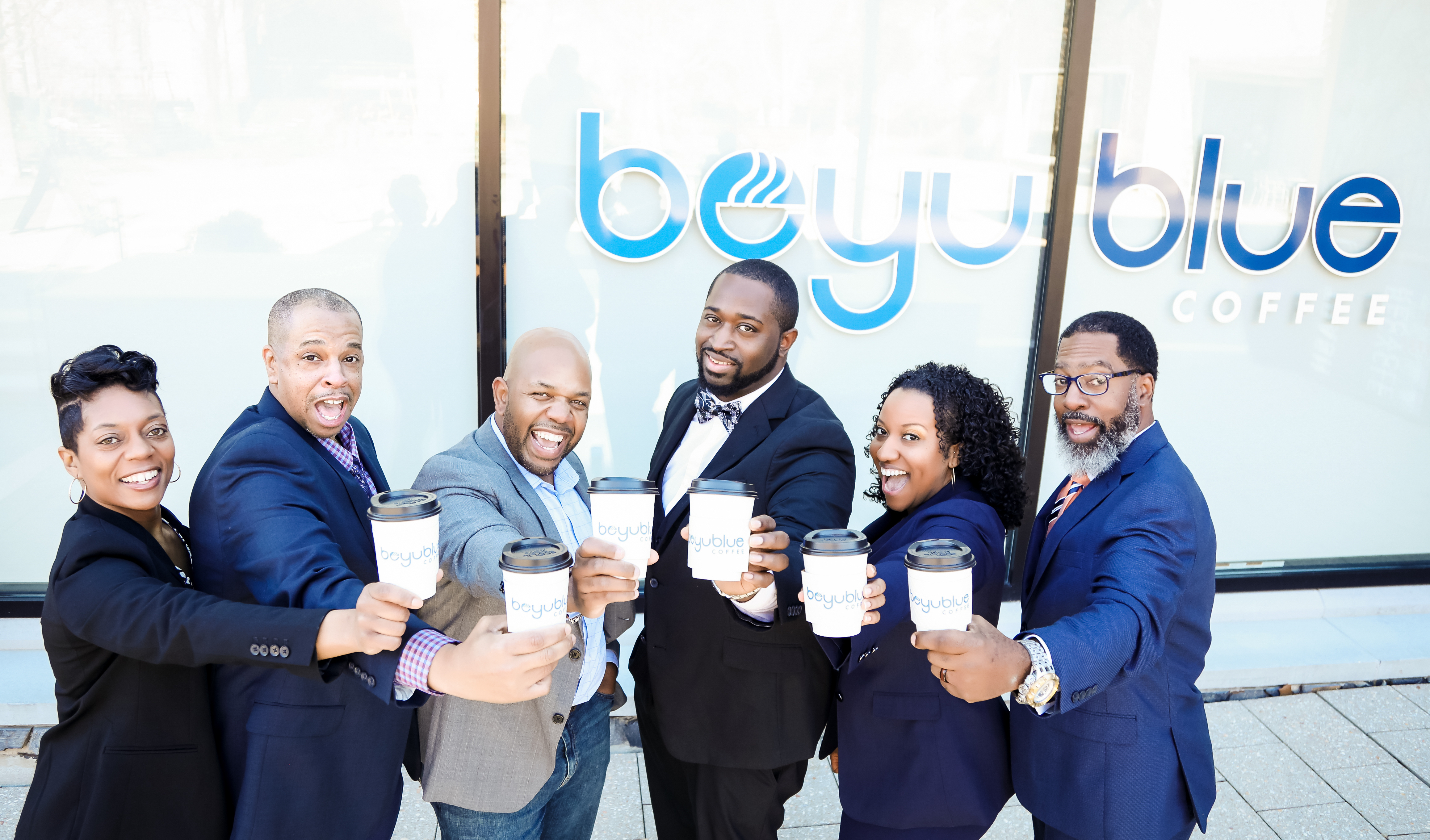 Photo courtesy of Dorian Bolden.
Photo courtesy of Dorian Bolden.
Bolden’s Beyu Caffe was born from loss and revelation, somewhere between where he was and where he wanted to be. The Duke University economics grad and Georgia native was working on Wall Street when his father passed suddenly. “Flying back to Atlanta for the funeral,” he says, he felt a resounding message: “Tomorrow isn’t guaranteed.” Bolden says chasing money had been his singular focus as an investment banker. Around the same time his father passed, a company merger had changed the landscape at work. “In the irony of the universe,” Bolden says, “[my] entrepreneurship was sparked by those two events.”
Back in New York, through the day-to-day challenges that have always been tethered to Black mens' lives, particularly in corporate settings, Bolden’s friends, Black men like himself, would encourage him. “They would say ‘Dude, just be you. Be yourself. You got this.’” The company name is a spin-off from those affirmations.
Beyu Caffe was inspired in part by Atlanta’s Café Intermezzo. “It’s this European-style coffee house, 17th-century, with beautiful woodwork, and late at night all of these brothers and sisters from Morehouse, Spelman, Morris Brown, Clark would congregate [there].” Bolden loved the look of the place, the atmosphere, and the cultural draw - the way it brought Black people together. “Beautiful Black and brown people conversing, being our true selves,” he says.
Back then, before the tech boom, Duke’s economics track didn’t emphasize entrepreneurship. It was by 12 years of hands-on training and transition, Bolden says, “learning about business holistically, beyond just the numbers,” that he became an entrepreneur. "I learned the process, from the plant to the cup. I learned about coffee the way people learn about wine,” he says, with pride of ownership.
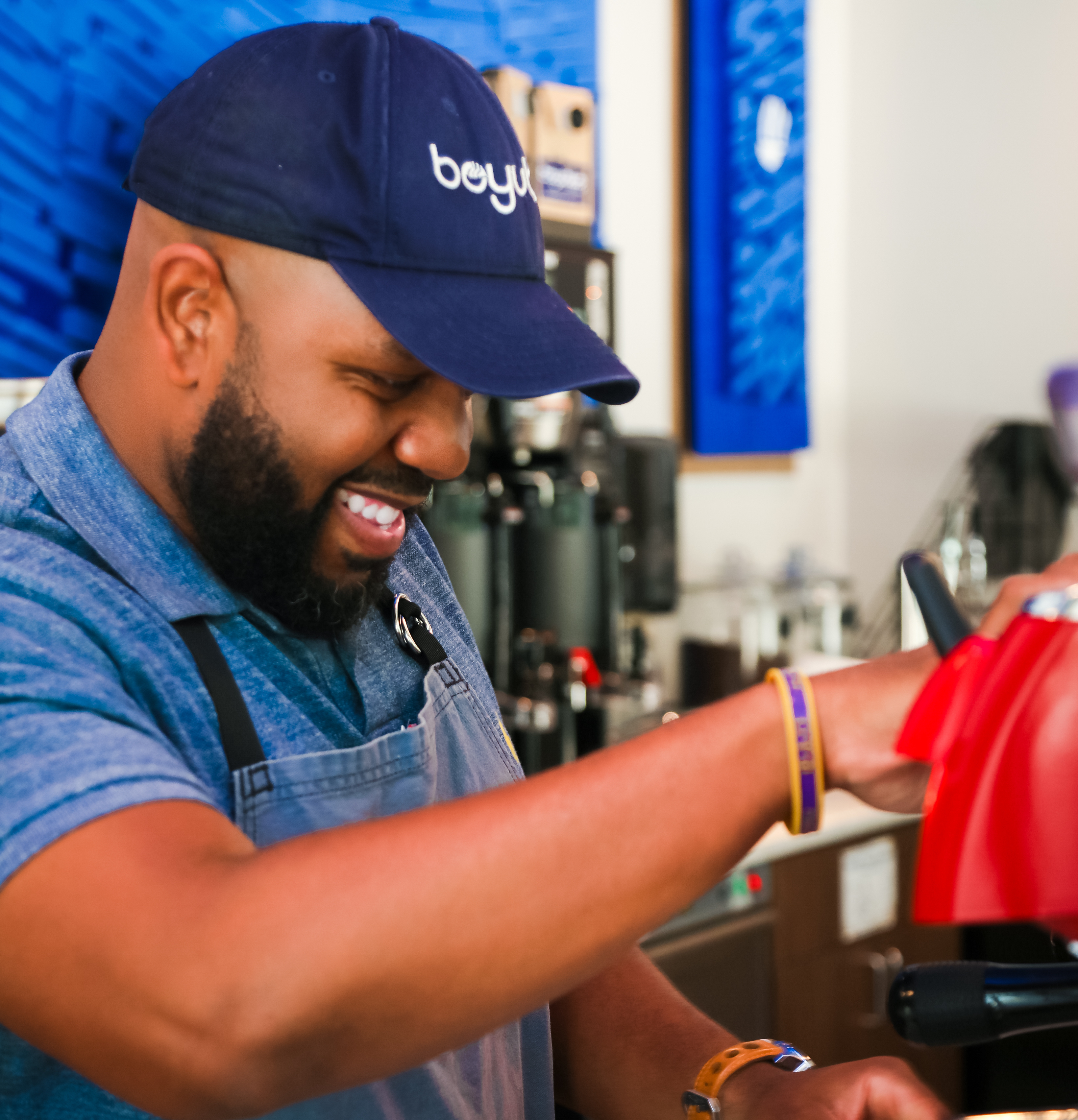 Photo courtesy of Dorian Bolden.
Photo courtesy of Dorian Bolden.
Having recently closed a round of capital financing, Bolden’s third location is set to open in March 2021 as part of the Boxyard Research Triangle Park, a retail community project housed in shipping containers, where shops will surround outdoor dining and live music.
Upon early signs of COVID-19's business impacts, Bolden’s struggle to purchase the flagship space in 2016, instead of renting, paid off. Bolden says the ability to obtain loans depends “on the nature of assets between Black and white communities, between renters and owners.” He says property owners were first in line for COVID-related loans. “I didn’t have to call my bank. My bank called me.”
That afforded him the most valuable business resource that one could hope for: peace of mind. “What I didn’t know prior to COVID is the greatest difference between Black and white businesses, the ‘haves’ and the ‘have nots’, is the peace of mind to be patient, the luxury of time to be innovative and creative, to think through ideas and strategies, to plan growth, and be successful.”
If the virus remains a significant threat through the coming months and years, Bolden says they’ll just adapt. “We’ve had to adapt from day one. What's different about now? We’re used to working with nothing. For the first time,” he says, “white people got a taste of what it feels like to be Black.”
Beyu Caffe has even seen marginal profitability during this time. “We’ve been able to bring back some of the furloughed staff, and we’ve retained the management team,” says Bolden.
They’ve also managed to give back to their community. Because of the new funding and business outlook, Beyu Caffe was able to help tackle the region’s food insecurity problem through a community business solution, the Feed DURM Food Relief Initiative. Through this initiative, they're addressing what Bolden calls an “abyss of [malnutrition], historic racism, and oppression.” Combating childhood obesity resulting from processed foods served in schools where neighboring families are Black and brown and live below the poverty line, Bolden and Beyu Caffe have provided 53,000 meals in just five months.
We’ve had to adapt from Day 1. What's different about now? We’re used to working with nothing. For the first time, white people got a taste of what it feels like to be Black.

Dorian Bolden
Owner, Beyu Caffe Hospitality Group
In the city of Nashville, Danea Roberts is also working to bring more healthy options to her community through Rated V Catering.
From the time she could push a chair to the stove and stand on it, she’s loved cooking, but the power to improve physical health is what compelled her journey towards catering. “I dealt with a chronic disease, endometriosis, for years,” says Roberts. She’d undergone surgeries and experimentation with various treatments, “but no one ever told me to change my diet.” When Roberts’ health demanded dietary changes, she transitioned to a vegan diet, and that’s how Rated V took shape.
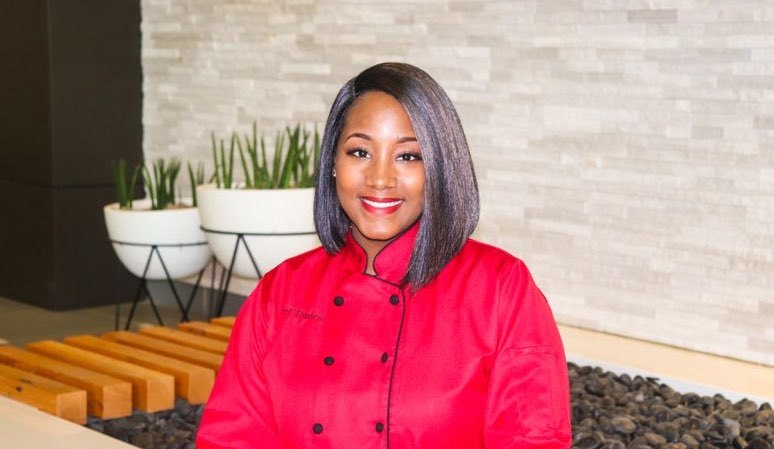 Photo courtesy of Danea Roberts.
Photo courtesy of Danea Roberts.
For the first few months, she dedicated herself part-time to her new business, creating a kind of test kitchen, and gauging reception from the community. Her clientele increased to such a degree that she took the leap, committing herself full time to Rated V.
Now, for a little over a year, Roberts has provided plant-based catering and meal prep for greater Nashville and beyond, “helping people feel better with food.” She uses a commercial kitchen to prepare, and then she delivers. Roberts says she may be the only vegan chef in Nashville that does so.
In part, credit for her success goes to her background in sales and her knack for time management, but “it’s really a pure love and dedication to the art [of cooking], the learning and the teaching,” that have helped her business thrive, she says.
COVID-19 revised her goals. “A brick and mortar [venture] turned into a scary option for me,” says Roberts, 29. This is true for many others new to the industry. She decided she'd rather franchise food trucks, and eventually invite other chefs to “take a truck on the road and just learn and grow their business.” It’s an innovative and appealing opportunity that comes with fewer risks and more freedom.
Roberts plans for Rated V to be everywhere - on wheels and on shelves. She says “The goal is for Rated V to be a household brand,” including multiple revenue streams like vegan skin care products and fitness wear. A Rated V app is also in the works to provide a one-stop-shop for customers.
Roberts leads her business with customer education, introducing her community to vegan dining by dispelling misconceptions about cost and taste. “I never lead with ‘we’re vegan.’ I show them pictures and videos of Rated V menu items and then I say ‘we’re 100% plant-based,’” she says. She starts with teaching and tastings, conveying to potential clients that vegan food is healthy, inexpensive, and enjoyable.
I never lead with ‘we’re vegan.’ I show them pictures and videos of Rated V menu items and then I say ‘we’re 100% plant-based.'

Danea Roberts
Owner, Rated V Catering
Lenell and Ashleigh Watson are the proprietors of Crab Boss, now in two northeastern locations: their flagship restaurant opened in Brandywine, Maryland in 2016, and their store on DC’s buzzing H Street opened this summer.
For the Watsons, offering Florida-style seafood as new residents in Maryland meant, first, finding their customers. Like Roberts, the Watsons used creative and animated video and social media posts to do that, broadcasting “‘Hey, I got Florida-style seafood!’” across various platforms, says Lenell Watson. With a mix of curiosity, adventure, and entrepreneurial spirit, he pitched his product to the masses of Maryland, cooking and selling food from their home, using recipes committed to memory from his grandfather’s kitchen — Big Al’s recipes are the backbone of the business, and they began to attract crowds.
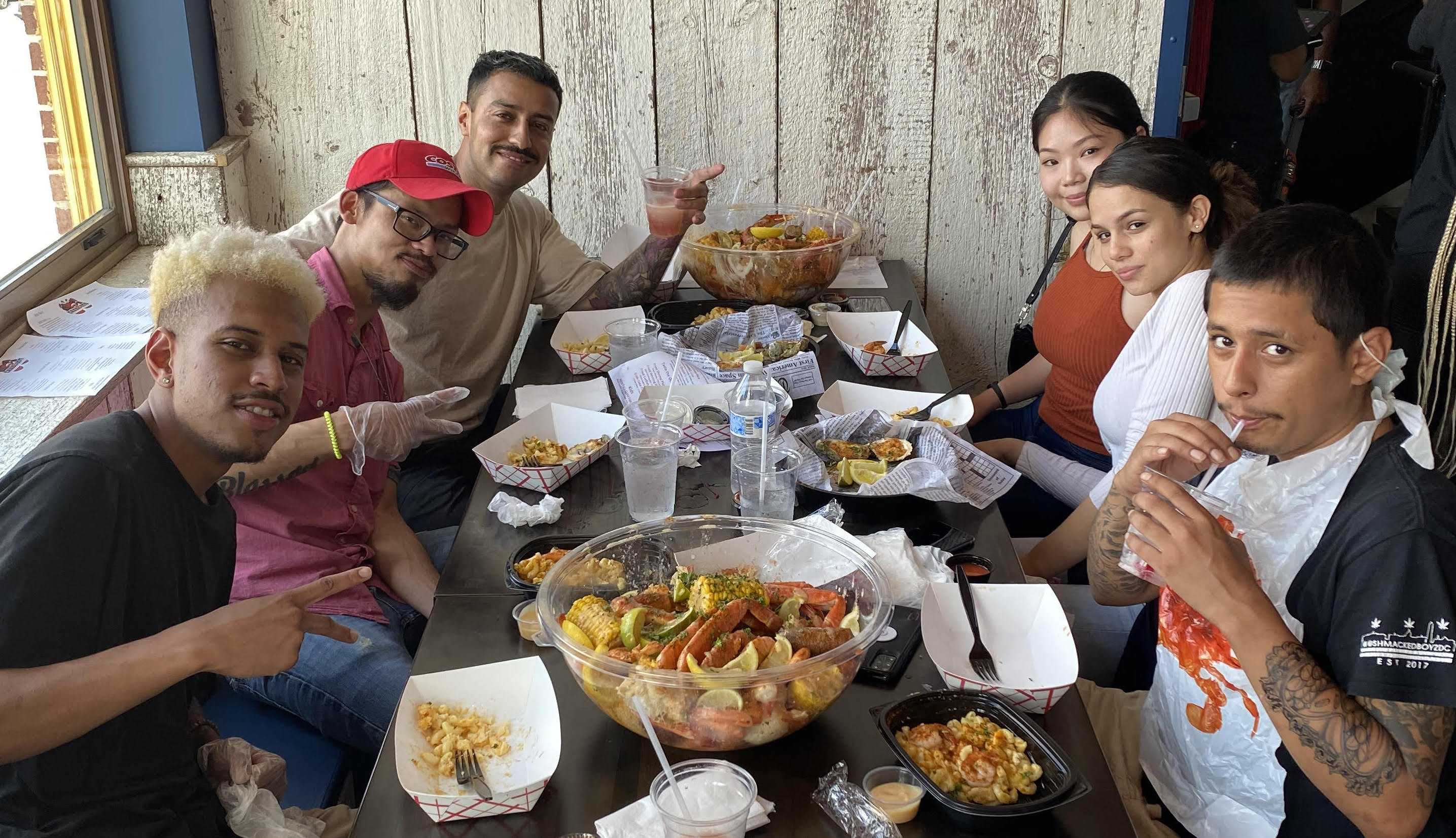 Photo courtesy of Crab Boss.
Photo courtesy of Crab Boss.
Soon, the business grew by word of mouth, and a swelling customer-base demanded more than their domestic kitchen could provide. “Everybody wanted what we had. Within a couple of months, we had to find some type of alternative cooking situation,” he recalls — but they had no means. “It was just me and her,” says Lenell, referring to his wife, Ashleigh.
For a long time, Watson, 42, and Ashleigh, 34, found no properties within their budget that would allow them to get in and get started. Then came a man with a proposition about a building in rural Maryland. A client of his had a business that wasn’t doing well at this location. “It might be the perfect place for you,” he said — but Watson thought the opposite when he saw the building for himself. It was dilapidated “times ten,” he says, and out in the country.
Still, Watson was encouraged to think beyond the now, and about the hidden potential in the opportunity. So they leased the property and, after a while, with business strong, they’ve even renovated. They held ‘pull-ups,’ a reverse pop-up, where customers came out to their rural location in droves. Their year-over-year success in Brandywine has proven the wisdom in their decision about the property.
The recently opened DC location came by a similar route. Vida Ali, owner of Ben’s Chili Bowl, a DC staple, had storefront rental space available in a bustling district. According to Watson, Ali had been hesitant to move forward on an earlier offer: “She didn’t want the space to go to just anyone. She wanted to help a young Black couple who needed the opportunity,” he says. The Watsons were that couple. It’s as though both Crab Boss locations had been set aside just for them.
To weather the pandemic, Crab Boss has implemented Smart Locker Technology (patent-pending) by Lavii, a Black woman-owned company. Lavii launched the lockers in August to meet the new demand for contact-free interaction between customers, restaurants, and third-party delivery drivers. The company’s CEO Rea Huntley, says the idea came to her in June 2019. She had placed an online order, then on arrival found herself stuck in line to pay at the register, while her order sat waiting for pick up. That’s when she started to think about ways to implement a fast, efficient, secure, and convenient order pickup process. The company currently serves the DC, Maryland, and Northern Virginia areas.
Crab Boss has seen amazing growth: the company now employs about 40 people in all, but Watson offers cautionary advice to those considering the industry: “Start small and look to get big. People think ‘if I’m going to start a restaurant, I need to have nice furniture, I need to have a building, nice floors.’” Watson says customers aren’t looking for that. They’re looking for good food and great service, or a great product. “So, get the customers first. Get the fluff later.”
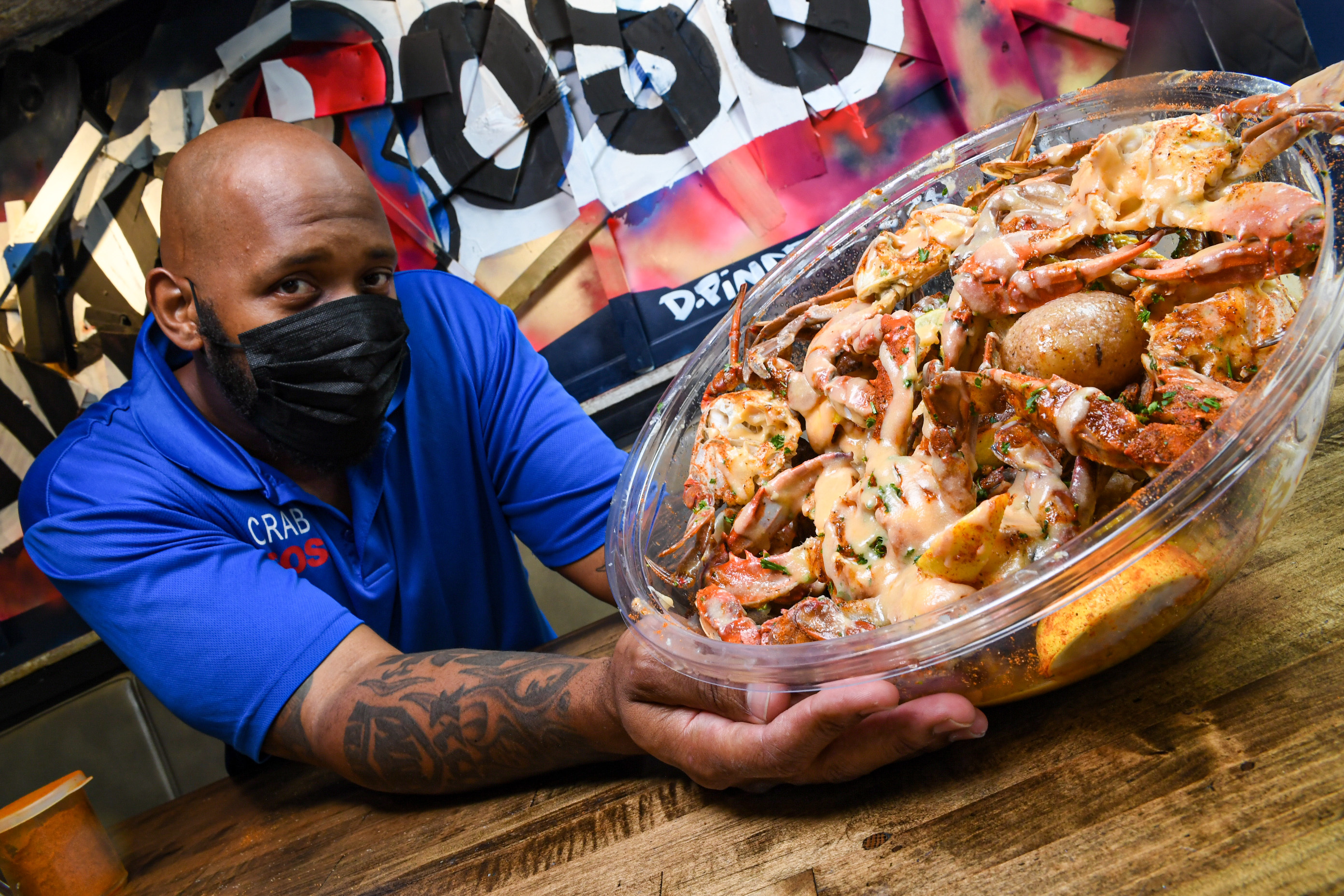 Photo courtesy of Crab Boss.
Photo courtesy of Crab Boss.
Watson grew up in a family full of hustlers - good and bad, he says. “I had opportunities to go left or right, and the [left] side was what drew me because of the fast money, the nice cars, and things. Those things are what got me caught up when I was young.” Watson, a recovered drug addict, has been imprisoned on multiple sentences, and completed his high school diploma inside.
The magnitude of his transformation is not lost on him. He’s open about his past, seeing transparency as a way to make good use of his experiences, to benefit other Black men and women. When asked about his greatest accomplishment so far, he said "I came from the bottom. My greatest accomplishment is coming from where I was to where I am. There’s ups and downs, but to me, every day is a good day.”
I came from the bottom. My greatest accomplishment is coming from where I was to where I am. There’s ups and downs, but to me, every day is a good day.

Lenell Watson
Co-Owner, Crab Boss
Don’t be ashamed about missing the lessons in life, he adds. “When you’re in school learning a lesson, you may not get some of the answers right because you don’t understand the lesson being [taught]. Everything that I’ve experienced up to this point,” from employees stealing from him to his own poor decisions, “everything was a lesson being taught.”
“I’m super thankful to the Black community because they’ve carried us through this pandemic. They showed up and kept coming,” says Watson, his gratitude palpable. Among the many Crab Boss patrons are celebrities 50 Cent, Shy Glizzy, Latoya Luckett, TyDolla$, Tracy Braxton, and Ginuwine, according to the company’s website.
The Crab Boss himself landed on Good Morning America in March this year. After lingering communication with network representatives, “they asked ‘how fast can you be here?’” said Watson. “I asked how fast they needed me, and they said ‘how about today?’” So, in the middle of training new employees in DC, the couple dropped everything and headed straight to the airport, without luggage, and the show aired the next morning. Watson says, “When opportunity knocks, don’t wait.”
Is this article helpful?
DISCLAIMER: This information is provided for general informational purposes only, and publication does not constitute an endorsement. Toast does not warrant the accuracy or completeness of any information, text, graphics, links, or other items contained within this content. Toast does not guarantee you will achieve any specific results if you follow any advice herein. It may be advisable for you to consult with a professional such as a lawyer, accountant, or business advisor for advice specific to your situation.
Read More
Subscribe to On the Line
Sign up to get industry intel, advice, tools, and honest takes from real people tackling their restaurants’ greatest challenges.
